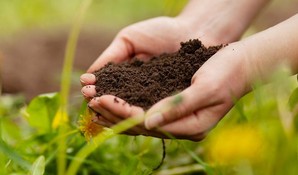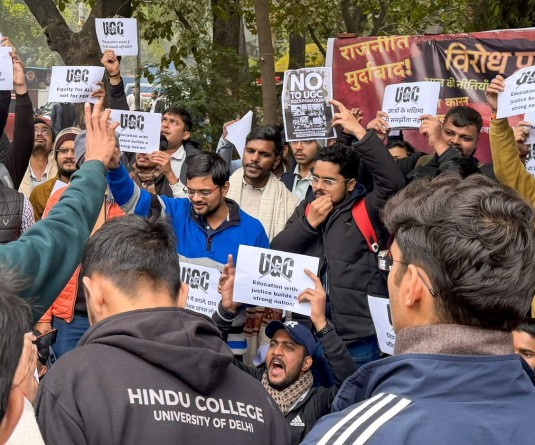IANS Photo

United Nations, December 24 (IANS) While attention has been focused on greenhouse gas emissions from transportation and power generation, agriculture is only now getting due attention as a factor in climate change even as hunger stalks hundreds of millions and the global population is set to rise.
The UAE Consensus document adopted at the summit this month in Dubai called for climate-resilient food and agricultural production and supply and distribution of food, as well as increasing sustainable and regenerative production and equitable access to adequate food and nutrition for all.
And at the meeting known as COP28, 159 leaders adopted a detailed Declaration on Sustainable Agriculture, Resilient Food Systems, and Climate Action to help keep global warming at 1 degree centigrade.
The world leaders pledged to work for shifting from higher greenhouse gas-emitting practices to more sustainable production and consumption approaches, including by reducing food loss and waste and promoting sustainable aquatic blue foods.
The importance of agriculture in containing global warming can be seen in study by a team led by Atul Jain, a professor at the University of Illinois Urbana-Champaign that found that food-based agriculture accounts for 35 per cent of all human-made greenhouse gas emissions, over half of that from animals, non-food agricultural production like cotton and rubber another 14 per cent.
While agriculture is essential to human life and cannot be shut down like fossil fuels, efficient practices and products can help reduce greenhouse house gas emissions.
And its future is very important in India, where 44 per cent of the labour force works in agriculture, according to the World Bank.
Paradoxically, an increase in global warming also endangers food production at a time when there is growing hunger.
The Food and Agriculture Organisation said that addressing the immediate food security and nutrition needs must not come at the expense of jeopardising future requirements.
“On the contrary”, it said, “efforts should be focused on minimising emissions to the greatest extent possible while still aligning with social and dietary objectives to mitigate global warming.”
The FAO said that substantial endeavours are essential in adaptation to achieve increased productivity with reduced resource consumption.
Cognisant of the UN data that people facing hunger could be as high as 783 million, the leaders' sustainable agriculture declaration paid attention to also the questions of fighting hunger and improving the lives of agricultural workers in the Global South.
It said that efforts should be made to promote food security and nutrition by increasing efforts to support vulnerable people through approaches such as social protection systems and safety nets, school feeding and public procurement programs, targeted research and innovation.
It also called for scaling-up adaptation and resilience activities and responses in order to reduce the vulnerability of all farmers, fisherfolk, and other food producers to the impacts of climate change.
Craig Hanson, a managing director at the World Resources Institute (WRI), said that each country will need to forge a path toward a more sustainable food system.
“Rich countries will need to nudge people toward less meat-centric diets, and advance technologies and practices to drive down agricultural emissions [while] low-income countries will need to sustainably boost crop and livestock productivity, even in a changing climate,” he said.
The WRI sets up the challenge the world will face on the food front: By 2050, the global population will be about 9.8 billion, up from the current 7 billion, requiring a 50 per cent increase in food production.
In this scenario, there has to be a slowing of demand growth, which WRI says would require reducing food loss and waste, moving toward plant-based foods, and not increasing biofuel production.
Although for ideological and political reasons, the WRI avoids the word “vegetarian”, the underlying message is clear.
It said that the consumption of meat from cattle, sheep, and goats which is expected to grow from what it was in 2010 by 88 per cent in 2050 should be reduced.
Making up for the limited land available and reducing greenhouse gas emissions, the 20 per cent of the people who would be consumers of those types of meat will have to reduce their consumption by 40 per cent of the level in 2010.
Technological innovation would be another area to meet the challenges of both reducing greenhouse gas emissions and meeting the food needs of the people.
“A revolution in molecular biology opens up new opportunities for crop breeding,” WRI said.
It said that technology can produce crops and additives that reduce methane emissions from rice and cattle, and improve fertiliser forms and crop properties that reduce nitrogen runoff.
Solar-based processes for making fertilisers, organic sprays that preserve fresh food longer, and plant-based beef substitutes, are other WRI suggestions.
But all these would require research and development funding, and flexible regulations that encourage private industry to develop and market new technologies, WRI said.






